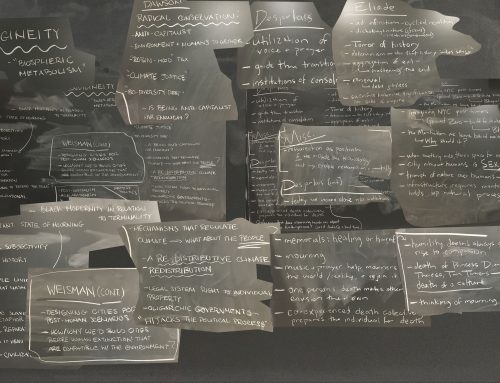Group 3 weekly Post: Ousmane, Armando and Oscar
Professor’s prompt: Through Kovel’s chapter: the machinery of capitalism will inevitably lead to ecological doom. Either counter or defend this position. If you were going to counter this process of ever-expanding capitalism, what would you need? What would you be looking for? What data do you need to make your argument, and where do you go to find it?
Our group looks at the “machinery of capitalism” — or technology — as a two sided coin. On one hand, resource extraction and the capitalist ideology of expansion give rise to unsustainable practices of ecological destruction. On the other hand, increasing technological development may help us build the tools necessary to achieve modern sustainability. In order to decide whether capitalistic expansion will inevitably lead to the demise of ecology, we would look at data on different global industries of resource extraction, and the effect on the environment throughout the years. We will then look at research on technological sustainability plans and try to determine if there is a happy ending to the ideology of capitalist growth.
To do this research, we would look at academic papers and investigative journalism reports to give us an idea of global systems of resource extraction, and statistics on the resulting ecological harm. We would look to reports from organizations like Intergovernmental Panel on Climate Change, press coverage on UN Reports (NY Times, NPR, UN News) as well as academic papers and essays in books like FOUR ECO-NOMICS: Domesticity, Ecology, and Political Economy, Climate Change and Capitalism, Carbon Metabolism: Global Capitalism, Climate Change, and the Biospheric Rift, and Capitalism: The Future of an Illusion chp 6. “The Illusion of Global Order Organized by Capitalism” (found on JStor). Then, to get a perspective on the direction of current tech development, we would look at business and technical journalism publications like Bloomberg Business, Financial Times, Marketwatch and GeekWire.
Our goal here is to get a sense of our historical backdrop of capitalism effect on the environment, then examine the current state of technology development in order to make a fair projection on possible futures. Will capitalism be the ideology that leads our world to ruin, or will it create the wealth necessary to rescue itself from the environmental damage that it has caused? Will capitalism continue to lead to irreconcilable economic stratification, or will it be the liberalizing force that creates the surplus necessary to support the entire population of the world? These are some of the questions we would hope to answer in this study.

Recent Comments